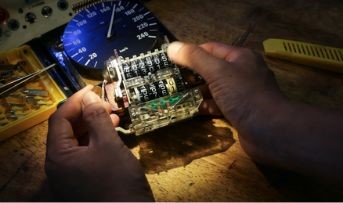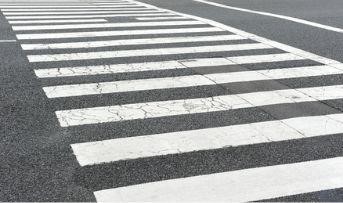General Insurance Blogs, Articles & Updates by - Magma HDI
Have us call you
- RENEW YOUR POLICY
- BUY NEW POLICY

Why is it important to practice defensive driving, and how can it benefit you
Defensive driving is the technique in which you drive cautiously and smoothly, minimising the chances of engaging in an accident and damaging your car and that of third parties. Car accidents mainly occur due to reckless and rash driving. A defensive driver ensures that he drives carefully so that he does not engage in a collision.
Let us see why it is important to practice defensive driving and how it can benefit us.
1. Safety and security:
Defensive driving is necessary for your safety, security, and other vehicles on the road. Moreover, it can also save pedestrians around your vehicle from injuries and loss of life. It is an art that comes with planning and regular practice. You need to scan your surroundings and be alert while slowing down or changing lanes so that you do not collide with other cars on the street. A defensive driver believes that other drivers on the road can commit a mistake anytime while driving. Hence, he practices being perfect and better than them to leave no margin for errors.
Accidents prove very costly as you will have to get your car repaired if you meet with an accident. Raising an insurance claim for minor repairs is not advisable as you might lose on your NCB (No-claim Bonus). You will have to bear the cost of repairs and maintenance and the loss of time and effort spent on repairs. There is a high risk of loss of lives and valuable property in case of a severe accident. If you are a defensive driver, you can avoid such situations and practise disciplined driving.
2. Better mileage:
The most common reasons for poor mileage in a car are accelerating abruptly and driving in the high rpm range. You can go fast and enjoy the speed but will burn a lot more fuel and experience poor mileage in return.
A defensive driver always drives at a controlled speed, accelerates softly and maintains an economy rpm range that gives the best possible mileage. Also, he ensures that he does not brake abruptly and changes gears frequently. This helps to save on fuel costs and also prevent accidents due to over-speeding.
3. Low maintenance cost:
A defensive driver drives cautiously and with care to avoid getting hit by another vehicle. Because accidents pose a huge threat of scratches, dents, rubs, etc., on the vehicle that requires an immediate fix. Your car wouldn’t require frequent servicing because of your cautious driving style. You can benefit a lot from the low cost of maintenance and repairs.
4. Fewer traffic challans:
A defensive driver ensures that he does not skip red lights on crossings, over speeds, or enters a one-way road negligently. He is a vigilant and responsible driver. Hence, it is important to practice defensive driving as you will get none or very few traffic challans and save a lot of money and time.
Defensive driving is a skill that can be developed with constant practice, and by promising ourselves that we will not engage in brawls and fights on the road. Also, you must avoid changing lanes frequently, use proper and timely indicators and signals, and stay away from distractions such as the mobile phone while driving.
Good car insurance will benefit you in several ways. It takes care of your safety and security and helps you save on unnecessary repairs and maintenance expenditures in case of an accident. Also, you don’t need to go through emotional trauma and monetary loss if your car gets stolen, as your comprehensive insurance policy will take care of the financial loss and reimburse it. Buy car insurance online and stay stress-free by having a reliable safety net for your vehicle.
Click HERE to buy car insurance online to protect your valuable asset from damage.
Disclaimer: The information provided above is for illustrative purposes only. To get more details, please refer to policy wordings and prospectus before purchasing a policy.

Mileage tampering: How to detect tricked odometers used in the cars
India’s passenger-automotive industry was valued as the third-largest globally in 2022. While the market for new cars is predicted to grow at a higher rate in 2023, not all Indian consumers are covered under this segment and belong to relatively lower economic strata characterised by lower disposable incomes. Such buyers drive demand for second-hand or used cars.
Expected to grow at a CAGR of 15%, the Indian used car market is not to be undermined. With global economic conditions' uncertainty, making prudent choices such as buying second-hand cars and purchasing online car insurance is expected to continue. While you can derive significant value from pre-used vehicles, the chances of getting scammed are also higher in case of negligent inspection. Odometer tampering is a prevalent form of cheating that you must beware of while purchasing a used car.
Here’s all you need to know about tampered odometers and tips to detect them.
Defining mileage tampering.
An odometer is a device that measures the usage of a car in terms of the distance it has run. It is calculated based on the wheel's rotation, which depends on its perimeter.
Mileage tampering, or odometer fraud, is a common trick car dealers use to persuade buyers to purchase old and well-used cars. Practised for various reasons, rolling back an odometer is an illegal act done to get a better price by selling a used car.
The issue with odometer fraud.
1. The inflated price of used cars:
By misrepresenting the car’s present condition, car dealers trick buyers into believing that the vehicle is relatively unused and sell them the used car at a higher price.
2. Safety issues:
Apart from the price of the vehicle, it also raises safety concerns. A car that has been used for a long while is sure to have accumulated miles and been through its fair share of harsh weather, rough terrain, and occasional accidents. All these factors are likely to adversely impact the vehicle's internal components and body frame, making it unsafe in the long run.
3. Insurance fraud:
Buying a used car with a rolled-back odometer may put you at risk of online car insurance fraud. While you may not have intentionally misrepresented facts and may be the victim of a tampered odometer, insurance companies see facts at face value and do not consider earlier activities. Therefore, it becomes essential for you to declare genuine and accurate mileage figures related to your car while buying online car insurance to ensure raising a successful claim when needed.
Tips to avoid odometer fraud.
1. Check the service records:
Before committing to purchase an old car, ensure that you check the maintenance records. Missing entries and figures that don't match are a sign to look out for.
2. Inspect the car body:
Check if the car's physical condition aligns with the story represented by the odometer. A worn-out, dent-ridden, paint-scratched vehicle is bound to have been on the roads for longer than one in pristine condition.
3. Look under the steering:
What are some key giveaways of a well-used car? It's the accelerator, brake and clutch! The groove depths of the pedals can indicate the usage of the vehicle and help detect odometer fraud.
4. Check the odometer:
While there are no tell-tale signs, the naked eye can identify a poorly done tampering job. This could be in the form of ill-fitted modifications and off-sounding odometer mechanisms.
5. Experts know best:
If you're sceptical, asking for an expert’s evaluation is best. This way, analogue or digital odometers can be thoroughly inspected for tampering attempts.
Odometer tampering is widespread and spares neither digital nor analogue devices. In such cases, one must always exercise caution and take necessary precautions to detect issues before signing the dotted line. Additionally, continue your prudent streak and purchase online car insurance to protect yourself from the financial losses from car accidents.
Click HERE to buy online car insurance.
Disclaimer: The information provided above is for illustrative purposes only. To get more details, please refer to policy wordings and prospectus before purchasing a policy.

The need and benefits of automation for a convenient life at home
Technology is everywhere, and the world has already seen the drastic changes that technology has brought with it. Some hundred odd jobs are expected to be extinct in the next ten years because of the intervention of technology. But what are your benefits? Can you use technology to make things easier for you? These are only some of the many questions that people keep wondering about.
This article will help you understand a small aspect of the tech world that will immensely contribute to your daily life and why you must consider getting your hands on them immediately. Today, we will discuss home automation and why it is a game changer for an urban household.
1. Being in command:
Do you not hate leaving your comfortable sleeping position just to turn off the lights? Well, what if a simple command could achieve that. With home automation, your voice or mobile is the only thing you need handy to get things done around your home. Be it controlling the lights, music, volume, brightness, or the AC. Everything can be made convenient and hassle-free at the convenience of your fingertips.
2. Better security:
Since all the devices, including your doors, are connected to your phone, you can have 24X7 surveillance of your home. Motion detectors, heat sensors, cameras, and automated locks are some of the straightforward home security solutions you can invest in. You can opt for security alerts when you are away from home in case of suspicious activities.
3. More comfortable:
Imagine walking home on a hot sunny afternoon, and you get home, turn on your air conditioner and wait for it to cool the room before you can rest. With home automation, you don’t have to worry about that anymore. You can use your mobile phone to turn on your AC while being miles away from home.
Not only that, if unexpected guests on your way home join you, you can command your home automation system to turn on the guest lights and AC so that your guests walk into a cosy and comfortable living space.
4. Energy efficient:
A programmable intelligent automation system can analyse your active hours and control lights, cooling, and music based on your everyday routine and suggests the most energy-efficient way of applying these to your routine. Such systems not only help in better managing the resources, but they also help you in analysing your daily habits. With home automation, you can keep a tab of everything and understand the energy consumption rate over time.
5. Monitoring kids and pets:
One of the most important benefits of home automation is keeping an eye on your kids or pets. In today’s day and age, both parents are working parents. Monitoring a child’s daily routine can become stressful while being away from home.
With the help of home automation, not only can you see your children, but you can also interact with them over video calls. The same goes for pets. Various kinds of food dispensers dispense food on time to your pets. These gadgets will help ensure that your kid and pet are happy, healthy, and safe.
These are a few reasons why home automation is a significant investment. Safety, convenience, and comfort are only some factors that make it a must-buy for your home. For an added layer of protection, buy general insurance online. Search for an ideal home insurance policy under the general insurance category to safeguard your home and your family against any potential dangers. Get the best deals online and invest in a secure future of your most important asset.
Click HERE to buy general insurance online.
Disclaimer: The information provided above is for illustrative purposes only. To get more details, please refer to policy wordings and prospectus before purchasing a policy.

Zebra crossing: Why most drivers often ignore it
Zebra crossings worldwide provide pedestrians with a safe option to cross the roads amidst heavy traffic. While road rules might differ from country to country, the purpose of zebra crossing stays the same. When drivers see people waiting to cross the street at one end of the black-and-white stripes, they usually apply their brakes to allow pedestrians to cross the road.
However, unfortunately, most drivers tend to ignore the zebra crossing, nullifying the purpose and putting the safety of pedestrians at risk.
Skipping the zebra crossing deprives pedestrians of the chance to cross the road safely. And being ignorant on the road isn't just a threat to pedestrians; it also puts your vehicles at a high risk of damage. To avoid landing in such trouble and causing significant damage to your car, you must follow the traffic rules strictly and consider getting car insurance India to prevent monetary stress in unprecedented situations.
Where does the problem lie?
Many drivers don't obey traffic lights and make an emergency stop over the zebra crossings, making it hard for pedestrians to use the approved crossing path on roads that are already crowded. Surprisingly, although zebra crossings are present at busy intersections, traffic officials are somehow lenient toward automobiles occupying zebra crossings.
As a result, when attempting to cross the road, people frequently need to use their running skills to safely reach the other side without being hit by any vehicle. When the traffic lights malfunction, it becomes more challenging as the traffic is set loose.
Due to the chaotic traffic, school children wait several minutes to cross roads safely. Most kids assume that because they have learned about zebra crossing since they were little, cars will stop so that they may cross. However, the truth is different.
Unfortunately, many drivers don't know the importance of zebra crossings, and even the public works department doesn't care enough to paint them often. Public awareness campaigns on traffic etiquette are required.
Determining the requirement of a crossing.
Zebra crossings are used on roads with much traffic and where fewer people can cross the road at signal-controlled crossings. Many surveys of busy traffic intersections reveal that pedestrians find it extremely difficult to cross the road.
Also, personal injury accident data showed that most common accidents involving pedestrians happen at busy crossings.
If you're a pedestrian waiting at zebra crossings, then remember to:
● Give incoming traffic plenty of time to see you and stop before crossing
● Wait until both directions of incoming traffic have stopped or the road is clear before crossing
● Look for the traffic signals and avoid crossing in a hurry
If you're a driver, then remember to:
● Watch out for the traffic signal from far and accordingly prepare to halt
● Avoid halting over the zebra crossing and keep it clear for pedestrians to walk
● Never jump the traffic signal
Additionally, keep in mind that:
● Normal drivers tend to ignore crossings that are not frequently used
● Drivers require more time to manage their vehicles when the road is slick
● Cross the street only when the traffic is stopped
Drivers must keep all these things in mind while driving and follow the rules carefully to avoid collisions with pedestrians. Be responsible, follow traffic rules religiously, and avoid over-speeding on the roads. Prioritise your safety, fasten seat belts before beginning your journey, keep all the required documents handy, and purchase a valid insurance policy. Buy the best car insurance India not just because it is mandatory but more as a financial shield to protect you and your valuable asset in case of accidents.
Click HERE to buy reliable car insurance India.
Disclaimer: The information provided above is for illustrative purposes only. To get more details, please refer to policy wordings and prospectus before purchasing a policy.


